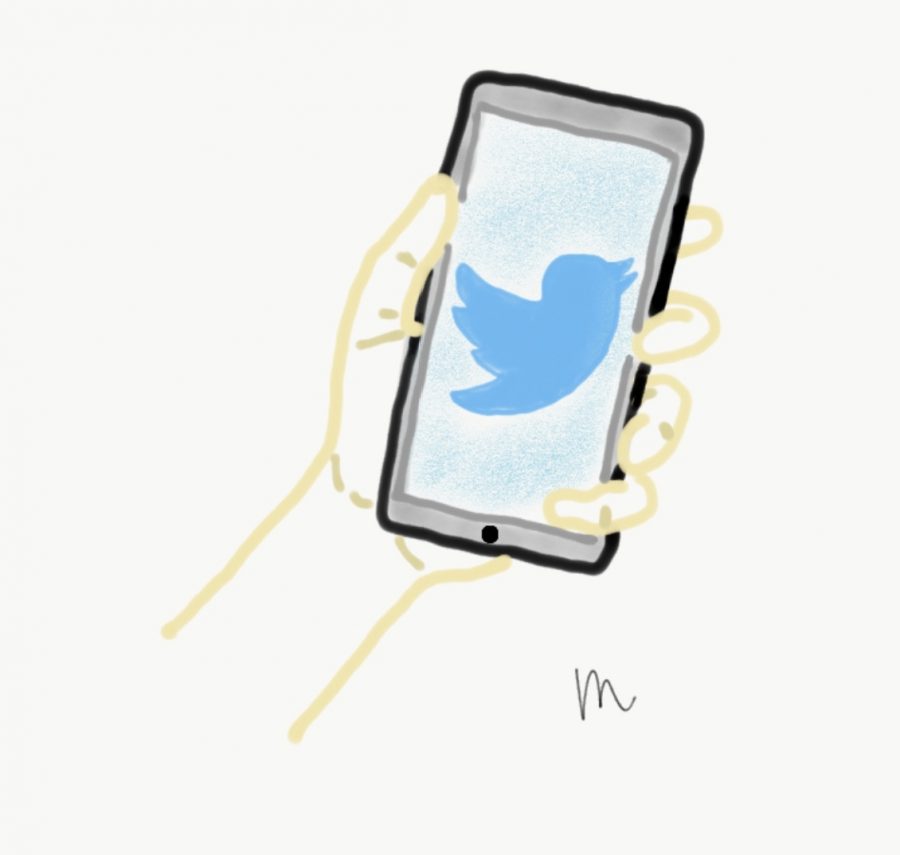The Right to Tell the Truth and Identify the Misleading: Twitter Fact-Checks the President
June 5, 2020
It is a well known to most of the American public that President Trump is an avid user of Twitter. He uses it for a number of different reasons including to make comments about other politicians, celebrities, and news stations. Over the course of his presidency, the number of times Trump tweets per day has increased greatly and recently, the content of his tweets have become a major, controversial talking point.
To a good number of people the substance of the president’s tweets have been questionable and their accuracy has been, to many, doubtful. Now Twitter itself has chimed in on the debate. Last week, Twitter, for the first time, started fact checking several of Trump’s posts and flagging them as misleading. As expected, Trump was not pleased with Twitter’s decision. In retaliation, he issued an executive order threatening to narrow legal protections for platforms that censor speech for ideological reasons. On top of this, after wrongly accusing an individual Twitter employee of censoring him, he made it clear that he would seek to punish Facebook, YouTube and other platforms that interfered with his ability to communicate directly with his followers as it supposedly violates his First Amendment rights.
Though he swore an oath to protect the Constitution, the president seems to be confused about what that document states. the First Amendment protects private citizens from having their freedom of speech, freedom of religion, freedom of assembly, freedom of the press, and the right to petition infringed upon by the government. In short, congress cannot pass a law, the president cannot sign a law, and the judiciary cannot uphold a law that prevents American citizens from speaking their peace. A company, such as Twitter, can choose to take action from anyone whose speech is disruptive or destructive to their business. Restaurants and bars frequently ask customers who are causing a scene to leave, and the oft-cited example of someone screaming “fire!” in a crowded movie theatre can lead to someone’s false speech leading to arrest or prosecution because they cause an imminent danger to others.
So, is the fact that Twitter has started fact-checking Trump’s tweets a violation of the First Amendment or is it a right of Twitter to fact-check tweets? Because Twitter is a private company with their own set of rules and guidelines, they reserve the right to declare tweets misleading and remove tweets that they deem as unfit for their platform. In fairness, Twitter did not block the president’s account or remove him from the platform, they merely pointed out inacurate statements.
By pointing out Trump’s tweets as misleading, Twitter is taking a small action to stop what is one of the biggest issues in our country: fake news. Twitter did research and found truthful information that disproved Trump’s claim and felt that they had an obligation to warn other Twitter users of this. They didn’t even take his tweet down; instead they tagged it as misleading which is their right.
Kevin Roose said in a New York Times article, “Twitter, Facebook and YouTube are private enterprises, with no First Amendment obligations to users, and courts have consistently ruled that these companies can set their own rules, just as restaurants can require guests to wear shirts and shoes.” So, Twitter, and other social media platforms, reserve the right to choose what they want presented on their platform and if their users — including the president of the United states — don’t like these rules and guidelines, they can use other platforms to get their information across.




